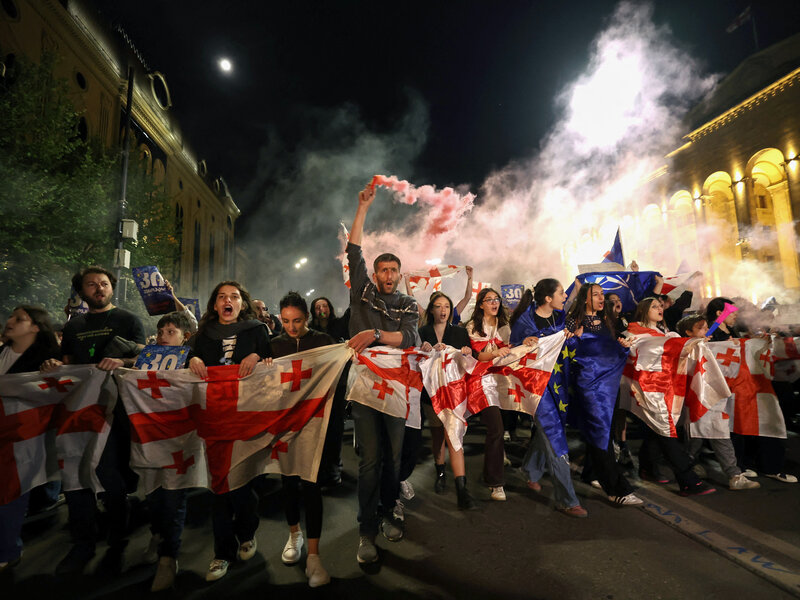In recent weeks, Tbilisi, the capital of Georgia, has been gripped by unrest. Night after night, protesters flood the streets. Inside the country’s Parliament, lawmakers even resorted to physical altercations. The tension reached a peak over the weekend with clashes between police and demonstrators at a major rally downtown.
The root cause of this turmoil stems from a decision made by the ruling party, Georgian Dream, to advance a controversial bill in Parliament. Opponents of the bill, largely aligned with pro-Western factions, fear it could suppress dissent and hinder Georgia’s aspirations to join the European Union.
The proposed legislation mandates that NGOs and media outlets receiving more than 20% of their funding from foreign sources register as entities representing foreign interests. They would also be required to submit annual financial reports. Violations could result in hefty fines exceeding $9,000.
This isn’t the first time such a measure has been proposed. Last year, similar protests forced the government to shelve the bill. However, Georgian Dream seems determined to push it through this time.
Critics draw parallels between this bill and a Russian law enacted in 2012, notorious for its use in silencing anti-government voices. They argue that by passing this law, Georgia risks aligning itself more closely with Moscow’s authoritarian tactics.
Ahead of the scheduled parliamentary debate, protests have escalated. Thousands marched through Tbilisi’s main avenue, denouncing what they call “the Russian law.” Some clashes with the police were reported.
Many protesters, like 59-year-old architect Irakli Vachnadze, believe the government is under Putin’s influence. However, experts doubt Russia’s direct involvement, suggesting instead that Georgian Dream seeks to consolidate its power.
Over 450 NGOs and media outlets have voiced opposition to the bill, arguing it stifles freedom of expression. Georgian Dream maintains that the law aims to increase transparency in foreign funding, citing similar regulations in Western countries.
Despite the government’s insistence, the bill faces significant opposition. President Salome Zourabichvili is expected to veto it, prolonging the legislative process. Georgian Dream insists on Georgia’s Euro-Atlantic integration but advocates for a more balanced approach towards Russia, accusing the opposition of risking Georgia’s stability in the face of the Ukrainian conflict.















































